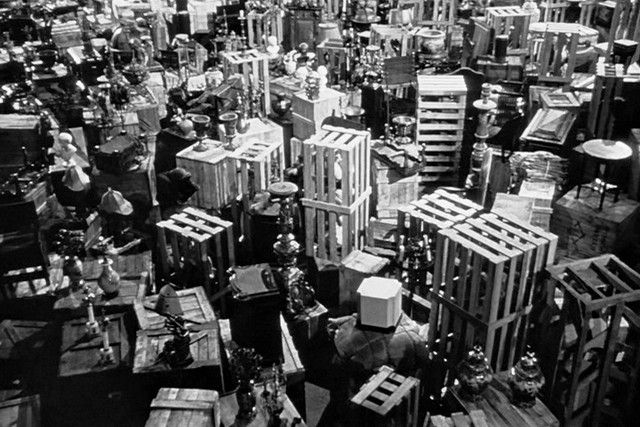
Ironies of History and Collecting
We often bemoan change. We mourn when an old building is torn down and replaced with a new one. We pause and reflect when we learn that the last person who lived through an important event passes away, and with that passing any living memory of that event. And we may feel frustration when a common symbol, one that we may even have taken for granted, is replaced with another.
But the irony is that if we don’t have change, then we don’t have history. If our lives don’t evolve in some way, then we don’t have a story to tell. And if we don’t recognize that we could lose something in the future, then we are less likely to appreciate that something now.
We mourn the loss of objects that we consider “historical” mainly because their demise often means losing the stories and memories that are attached to them. Objects can evoke memories—“I remember when we used to use this [fill in the blank] when I was a kid”—so when we no longer have access to those objects we also lose the mechanism that triggers such memories. Such objects may contain information that can teach us something about our lives that we have yet to process and understand, and their loss can impede or prevent us from learning something important about ourselves in the future. And these objects serve as evidence that can verify the truth of the stories that we tell and with their disappearance the stories attached to them can over time morph into the category of myth.
So why don’t we just keep everything? That way, we would ensure that all our memories and stories have the best chance of survival.
Of course, not only is saving everything impractical, doing so wouldn’t achieve our intended end. We would need an enormous amount of physical space to house everything, and such a space would need to be specially climate controlled to keep it all preserved. The storage space would also require some kind of mechanism to keep it all organized, so that people can easily gain access to the items they want to see. But as the collection continues to grow, so does the complexity of the organizational control mechanism. Eventually, such a collection becomes so large that it becomes nearly impossible to figure out where to start one’s research, and we lose the ability to identify the stories that truly matter because they are buried among all the others that have less significance. [The movie Citizen Kane illustrates this insight in its dramatic ending scene when those in charge of Charles Foster Kane’s estate are trying to make sense of the vast collection of objects he has acquired throughout his life (see the image above) and end up burning the object that supposedly provides a crucial key to understanding who he truly was.]
Librarians, archivists, and museum curators think about these issues all the time. We cannot keep everything, which means that we have to make decisions about what to save and what to leave exposed to the sands of time. These are weighty decisions, because what we decide to keep or throw away will determine the kinds of stories that we can tell about ourselves in the future.
How do we make these decisions? For contemporary materials, we try to imagine what it would be like to be a researcher, say, one hundred years from now: what would that person want to know about the time we live in today? We look for items that offer the best insight into our present-day reality. We try to build on the collections that we already have, so that people can better trace the specific themes embodied in those collections in more depth and over a greater period of time (and leave other themes to other institutions that are better situated to collect those materials). For older materials, we look for items that enhance or shed a different light on our understanding of an historical period. These are just some of the ways we decide what to keep and what not to keep.
Change happens. But if we don’t experience change, it’s a sign that we have become ossified, whether as a country, as a community, or as an individual. At the same time, we do not want to forget the past, because it provides insight into the trajectory of what we were then, what we are now, and what we want to be in the future. History—which we tend to think of in static terms due to an event’s fixed place in the past and our inclinations to preserve items tied to that event—ironically doesn’t exist without change and at times the destruction of the past to make way for the new. And collecting to understand the past ironically requires letting go of elements of the past. Librarians, archivists, and museum curators must work with these ironies every day.
—Anthony Vaver, Local History Librarian
Suggested Reading:
As librarians and archivists, we try our best to define the collecting parameters for our collections in documents called Collection Development Policy Statements. These statements outline the kinds of materials we are interested in collecting and help us rule out those that fall outside of the themes that make sense for us to collect.
You can read the Collection Policy Statements for both the Westborough Public Library and the Westborough Center on the library’s website: https://www.westboroughlibrary.org/about/policies-procedures/. Look for the “Collection Development Policy” and “Westborough Center Collection Development Policy Statement” in the drop-down menus.
* * *

Learn About Our Library’s History at the Upcoming Library Open House
“Great Libraries BUILD Great Communities” is the theme of this year’s Library Open House on Friday, September 9 from 5:00-7:00 p.m. To show how this theme plays out here in Westborough, we will be highlighting the history of the Westborough Public Library. Start in the Westborough Center to learn how the library’s roots go back to the eighteenth century, then roam around the library to see how the various roles that the library has played in the past continue to be central elements of our library today. There will even be a chance for you to become a part of Westborough history by adding your story to the Westborough Archive!
In addition to history, there will games, artists, free food, and more, so make sure to stop by this popular annual community event.
* * *

Nature Notes: August
Westborough is being invaded! Are aliens from another planet taking over our town? No, just Purple Loosestrife from Europe. Learn how this invasive species is competing with indigenous cattails and about other natural wonders here in Westborough in Annie Reid’s Nature Notes for August.
* * *
Did you enjoy reading this Westborough Center Pastimes newsletter? Then subscribe by e-mail and have the newsletter and other notices from the Westborough Center for History and Culture at the Westborough Public Library delivered directly to your e-mail inbox.
You can also read the current and past issues on the Web by clicking here.